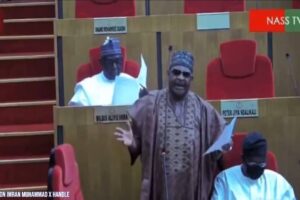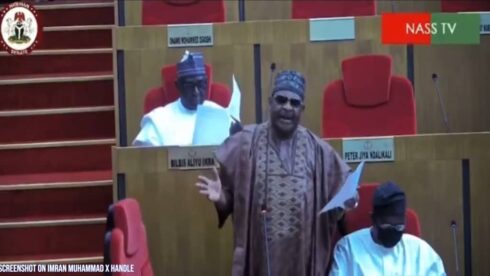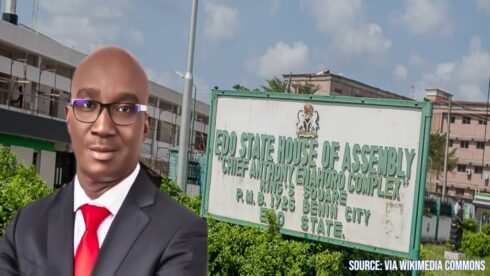Senator Abdul Ningi has expressed serious concerns about the allocation and utilization of security votes by Nigerian state governors, highlighting the lack of transparency surrounding these funds. During a recent address, he revealed that some governors receive as much as N500 million monthly as security votes. “I know for a fact that every state governor has what is called a security vote; I’m not sure about the amount. The issue here is what that security vote represents,” Senator Abdul Ningi stated. His remarks have drawn attention to the significant sums allocated under the guise of addressing security challenges, questioning whether these funds are genuinely serving their purpose.
The senator’s comments underscore the controversial nature of security votes, which have often been criticized for their opaque management. While intended to address pressing security issues, the lack of oversight has raised doubts about their effectiveness. Many believe that without transparency and accountability, these funds risk being misappropriated, further deepening public skepticism. Senator Abdul Ningi’s call for clarity comes at a time when insecurity remains a major concern across the nation, making it imperative to ensure these funds are properly managed to fulfill their intended purpose.
Security Votes: What Are They Really For?
Security votes are discretionary funds allocated to governors to tackle pressing security concerns within their states. The funds are designed to provide financial flexibility in addressing emergencies such as insurgencies, kidnappings, and communal conflicts. In theory, they allow governors to respond swiftly to security challenges without bureaucratic delays.
However, critics argue that these funds have become a loophole for corruption due to the absence of stringent oversight mechanisms. With no mandatory audits or public reporting, it remains unclear how much of the money is genuinely used for security and how much is diverted for personal or political purposes.
Transparency in Question: Senator Ningi’s Call for Accountability
Senator Abdul Ningi’s comments highlight the glaring lack of transparency in the management of security votes. Unlike other budget allocations, these funds are not subject to regular audits or legislative scrutiny. This opacity has fueled suspicions about their potential misuse by some governors.
Senator Abdul Ningi questioned the governors’ responsibilities in ensuring that these funds are properly utilized to enhance public safety. Without a clear framework for accountability, it becomes difficult to ascertain whether security votes serve their intended purpose or merely enrich a select few.
Despite High Spending, Security Challenges Persist
The widespread insecurity in many states raises doubts about the effectiveness of security votes. From banditry in the North to kidnappings in the South, Nigeria continues to grapple with severe security issues despite the massive allocations. This disconnect between spending and results has prompted calls for reform.
Senator Abdul Ningi’s inquiry reflects public frustration with the status quo. Many citizens question why insecurity remains rampant despite the billions allocated for security. The lack of tangible results underscores the need for a more strategic approach to tackling these challenges.
Reforms Needed for Effective Utilization of Security Votes
Experts and civil society organizations have long advocated for reforms in the administration of security votes. Introducing transparency measures, such as mandatory audits and detailed expenditure reports, could curb misuse. Allocating portions of the funds to community-driven security initiatives may also foster trust and improve outcomes.
Senator Abdul Ningi’s remarks underscore the urgency of these reforms. He stressed the importance of federal oversight and the establishment of clear guidelines to ensure governors use the funds effectively. Without such changes, security votes risk becoming a financial black hole rather than a solution to insecurity.
Public Reaction and the Road Ahead
Senator Abdul Ningi’s comments have reignited public debate on the role of security votes in Nigeria’s governance. While some believe the funds are necessary for managing emergencies, others see them as a channel for unchecked corruption. The growing demand for transparency and accountability reflects a broader desire for systemic change.
As the nation continues to face complex security challenges, the future of security votes hangs in the balance. Senator Abdul Ningi’s inquiry serves as a wake-up call, urging the government to prioritize reforms that ensure these funds fulfill their intended purpose: safeguarding lives and property.
Table of Contents
Discover more from OGM News NG
Subscribe to get the latest posts sent to your email.














